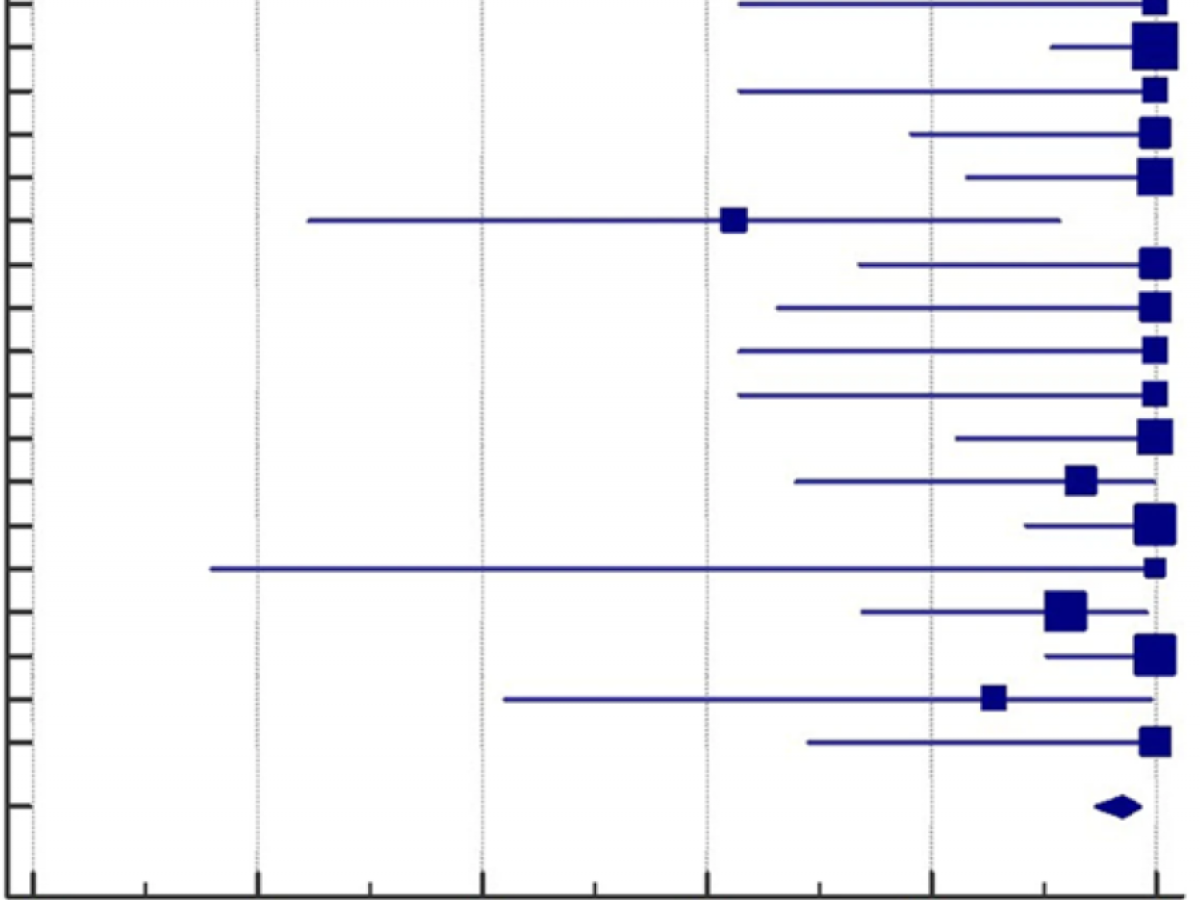Impacts and Projects
Through the development of trustworthy systematic reviews, guideline development and implementation studies, our group makes national and international impact on health and public health.
Our experienced research team have led and partnered with projects for national and international organisations. For example, in 2021 we began a collaboration with the Vector Control & Insecticide Resistance Unit within the Global Malaria Programme of the World Health Organisation. Our team led three systematic reviews focusing on various aspects of residual insecticide surface treatment as a measure to prevent malaria. This project was followed with a review on insecticide treated nets by the same group. These reviews provided the evidence to inform the WHO guidelines for malaria control.
Professor Zachary Munn was instrumental in undertaking this work. His guidance on the methodology of undertaking the assessment of the evidence and the grading was crucial.SOMANZ Hypertension in Pregnancy Guideline 2023
We are consultant methodologists and advisors for a number of guideline development projects. Below is a list of selected projects where we are supporting with guideline development:
- Australian Extracorporeal Membrane Oxygenation Guidelines
- Society of Obstetric Medicine of Australia and New Zealand Hypertension in Pregnancy Guidelines (SOMANZ)
- Australian Recommendations for Older Adults’ Physical Activity and Sedentary Behaviour During Hospitalisation for an Acute Medical Illness
- Australian Whiplash Guidelines
- Australian Physical Activity Clinical Practice Guideline for People with Moderate to Severe Traumatic Brain Injury
- Australian Physical Activity Guidelines for Adults
- Canadian Guidelines on Post-COVID-19 Conditions
- Australian Guidelines for Assessment and Diagnosis of Fetal Alcohol Spectrum Disorder or Neurodevelopmental Disorder Associated with Prenatal Alcohol Exposure
- International Clinical Practice Guideline for the Conservative Management of Chronic Musculoskeletal Neck Pain
- Clinical Practice Guidelines for the Management of Psychosocial Disorders Following Adult Traumatic Brian Injury
-
Guideline development examples

Society of Obstetric Medicine of Australia and New Zealand Hypertension in Pregnancy Guidelines (SOMANZ)
A multidisciplinary team created the SOMANZ guidelines, published in 2023. These guidelines aim to to improve outcomes for all women with medical disorders related to pregnancy, particularly pregnant women with hypertension. An extensive literature search and review was conducted, along with meta-analysis and GRADE.

WHO new recommendations for insecticide treated nets
Over 2021 to 2023, the JBI Adelaide GRADE Centre, led by members of HESRI Professor Zachary Munn and Dr Timothy Barker, began a collaboration with the Vector Control & Insecticide Resistance Unit within the Global Malaria Programme of the World Health Organisation. The project consisted of four systematic reviews focusing on various prevention strategies for malaria, including insecticide-treated nets and insecticide residual spraying. Following completion of these reviews, members of HESRI also consulted with the WHO Guideline Development Group to assist in the publication of new recommendations.
The findings of the systematic reviews resulted in the WHO publishing new recommendations for two new classes of insecticide-treated nets. For the recommendations made, see the press-release from the WHO.

RACGP recommend the use of combination nicotine replacement therapy
In 2018 and 2019, the JBI Adelaide GRADE Centre, and HESRI staff were commissioned by the Royal Australian College of General Practitioners (RACGP) to systematically review several different PICO questions related to new and varied smoking cessation options. These options included pharmacotherapies, dual-action nicotine replacement therapies as well as the use of e-cigarettes as a smoking aid. Dr Timothy Barker led this evidence review work and Professor Zachary Munn co-chaired the guideline panel and worked through the entire systematic review and evidence to decision framework with the RACGP Guideline Development Group.
This work led to several new recommendations being made, for various different which can be utilised by primary healthcare providers whose patients have expressed a desire to quit smoking. The complete recommendations made can be found online.
Guidance for developing guidelines before, during, and after the COVID-19 pandemic
The coronavirus pandemic in 2019 (COVID-19) has had significant and unprecedented impacts across the globe. This article, written by HESRI Director, Prof Munn, et al. (2020) discusses the landscape of guideline development and things to consider to support guideline development in future pandemics.
NHMRC Guidelines for guidelines handbook
The NHMRC develops high quality guidelines to support Australians in improving health outcomes. The Guidelines for guidelines handbook provides practical advice for guideline developers to meet national standards. HESRI staff were involved in the creation of this resource, and continually work in guidelines-related projects.
-
Methodological research examples

Conducting proportional meta-analysis, a guide for systematic reviewers
Proportional meta-analysis is a specific method of analysis that is unique to single-group data. For example, we may be interested in identifying the global burden of disease from individual, separate studies that provide estimates of this disease burden. A proportional meta-analysis would be the ideal statistical approach to synthesise this data together. This paper was led by HESRI team members Dr Tim Barker and Professor Zachary Munn and serves to provide guidance to systematic reviewers and evidence synthesisers for how to conduct a proportional meta-analysis. This guidance has been readily adopted by the evidence synthesis community and has been cited in world-leading systematic reviews on monkeypox and COVID-19 that have informed the development of clinical practice guidelines.
Updated methodological guidance for conduct of scoping reviews
Scoping reviews are an increasingly popular choice for answering questions such as "what research is out there?" However, their methodological guidance is sometimes unclear. HESRI staff are experts involved in providing guidance to improve the conduct and quality of various evidence synthesis types, such a scoping reviews.
Revised JBI Critical Appraisal Tools
The JBI critical appraisal tools are widely used in systematic reviews to assess the trustworthiness, relevance and results of a variety of different study designs. The JBI Effectiveness Methodology group, chaired by HESRI research fellow Dr Tim Barker, are updating the suite of JBI critical appraisal tools to be better aligned with the constantly evolving methodological advancements. These tools help to improve the quality of research and recommendations.
-
Evidence implementation theory, guidance, and examples
Multisite evidence-based implementation project on medication administration
Other examples
- Facilitation of evidence implementation within a clinical fellowship program: a mixed methods study
- Improving compliance of risk assessment and nonpharmacological interventions for deep venous thrombosis prevention in a respiratory ICU: a best practice implementation project
- Promoting continence in nursing homes in four European countries: the use of PACES as a mechanism for improving the uptake of evidence-based recommendations
- Primary open angle glaucoma management in a tertiary eye care center in Saudi Arabia: a best practice implementation pilot project
- Assessment of cardiovascular risk and target organ damage among adult patients with primary hypertension in Thika Level 5 Hospital, Kenya: a criteria-based clinical audit
Guidance for evidence implementation
- Implementing Evidence Using an Action Research Framework (The Lippincott-Joanna Briggs Institute Series on Synthesis Science in Healthcare)
- JBI's approach to evidence implementation: a 7-phase process model to support and guide getting evidence into practice
- JBI Manual for Evidence Implementation
Evidence implementation theory and concepts
- Evidence transfer: ensuring end users are aware of, have access to, and understand the evidence
- Trends in guideline implementation: an updated scoping review
- Action research in radiography: What it is and how it can be conducted
- JBI's approach to evidence implementation: a 7-phase process model to support and guide getting evidence into practice
- The Development and Use of Evidence Summaries for Point of Care Information Systems: A Streamlined Rapid Review Approach
- Translational Science and Evidence-Based Healthcare: A Clarification and Reconceptualization of How Knowledge Is Generated and Used in Healthcare
